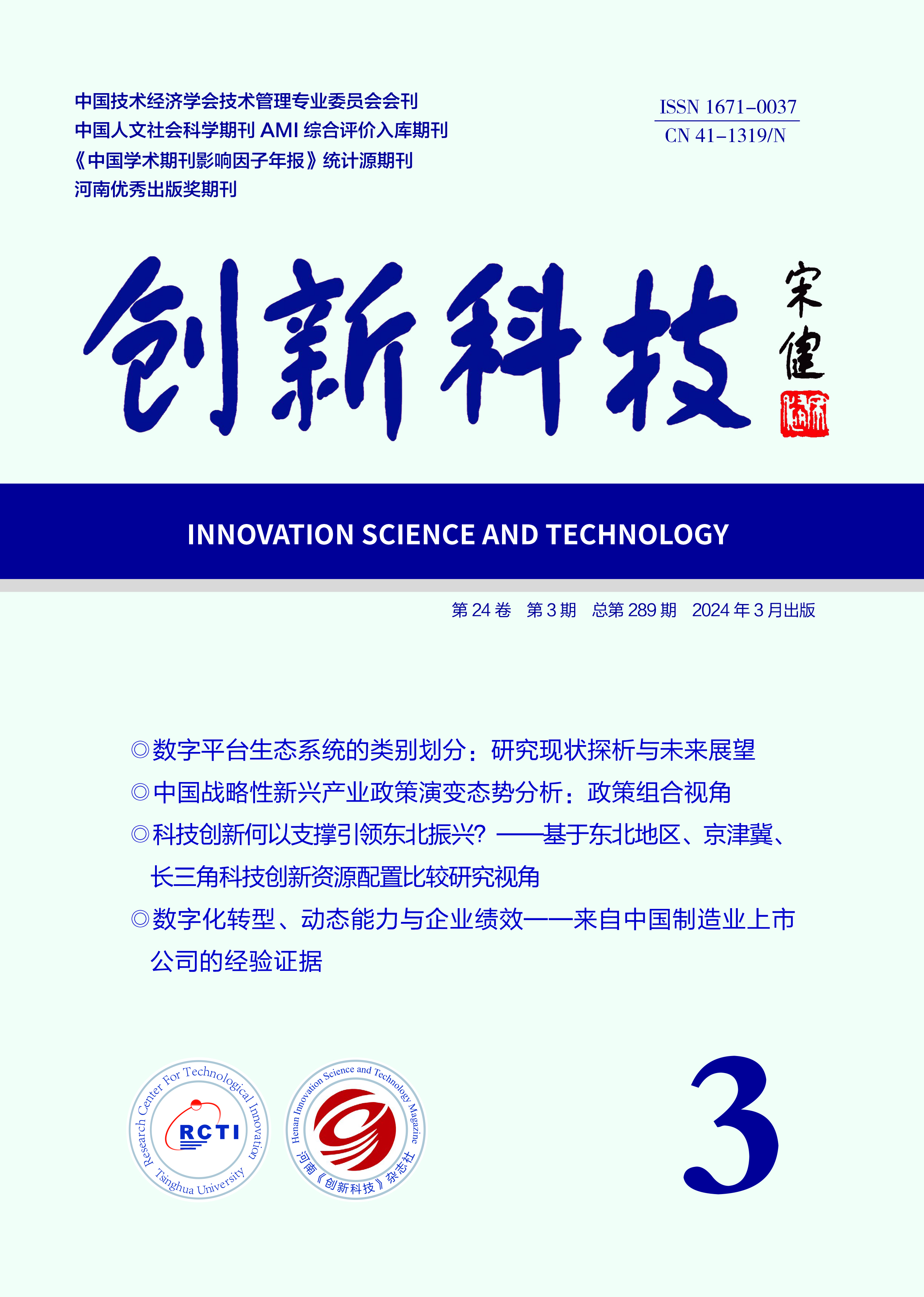INNOVATION SCIENCE AND TECHNOLOGY
Quick Search

All publication are peer-review
Peer review will take the from of double-blind review Judge objectively and impartially
There is no conflict of interest for the reviewer
Review articles shall be kept strictly confidential prior to publication
Enterprise's R&D and Innovation Management
The Impact of Entrepreneurship on Firms' Exploratory and Exploitative Innovation
Liu Zhiying1 , Zhu Qingyu1 , Gong Lei2,1
(1.School of Management, University of Science and Technology of China, Hefei 230026, China; 2.School of Alibaba Business, Hangzhou Normal University, Hangzhou 311121, China)
Abstract: With the acceleration of technological change and intensified global competition, Chinese firms' long-term reliance on imitation innovation for short-term profits is no longer sus⁃ tainable. Excessive exploitative innovation has led to a lack of control over core technologies in Chinese firms, which has led to the neck-sticking problem. In this context, ambidextrous innova⁃ tion strategy has become an inevitable choice for Chinese firms. Entrepreneurship takes innova⁃ tion spirit as the core and plays an important role in the practice of firm innovation. At present, innovation is usually regarded as homogeneous in studies on the relationship between entrepre⁃ neurship and innovation, and few scholars distinguish between firm innovation activities based on the perspectives of ambidexterity, let alone study the differences in the impact of different en⁃ trepreneurship on exploratory innovation and exploitative innovation. Based on China's policy guidance of vastly advocating the development of entrepreneurship, exploring the relationship be⁃ tween entrepreneurship and ambidextrous innovation has the important theoretical value and practical significance. This study takes the listed firms in the chemical and pharmaceutical industry from 2012 to 2021 as the research object to thoroughly test the impact of entrepreneurship on firms' ambidex⁃ trous innovation and further tests the moderating effect of environmental uncertainty. The results show that both the technical innovation spirit and the non-technical innovation spirit can pro⁃ mote the ambidextrous innovation, but the technical innovation spirit has a greater impact on the exploratory innovation, and the non-technical innovation spirit has a greater impact on the ex⁃ ploitative innovation. Environmental uncertainty reinforces the positive impact of technical inno⁃ vation spirit on the exploratory innovation and the ambidexterity of exploratory and exploitative innovations, and reinforces the positive impact of non-technical innovation spirit on exploratory innovation and exploitative innovation. The empirical results of this study provide important in⁃ sights into how firms can promote ambidextrous innovation strategies from the perspectives of en⁃ trepreneurship: Firstly, we should promote and cultivate entrepreneurship, and pay particular at⁃ tention to the technical innovation spirit of entrepreneurs. Secondly, firm innovation should walk on two legs and increase the proportion of exploratory innovation activities. Thirdly, firms should respond positively to the uncertain environment and turn competitive pressure into driving forces for innovation. This study extends the related research on the outcome variables of entrepreneurship, di⁃ vides entrepreneurship into technical innovation and non-technical innovation, and explores the impact of different entrepreneurship on ambidextrous innovation, as well as the difference in the degree of impact on exploratory innovation and exploitative innovation. A micro-level entrepre⁃ neurship indicator system is also developed and constructed to provide new ideas for the mea⁃ surement of entrepreneurship. Therefore, this paper is innovative, but there are still shortcom⁃ ings: The sample firms involved in a relatively single industry; This study only considers the mod⁃ erating effect of external environment of firms and does not consider the influence of firms' char⁃ acteristics; Possible intermediation mechanisms have not been considered.
Key words: entrepreneurship; exploratory innovation; exploitative innovation; environmental uncertainty